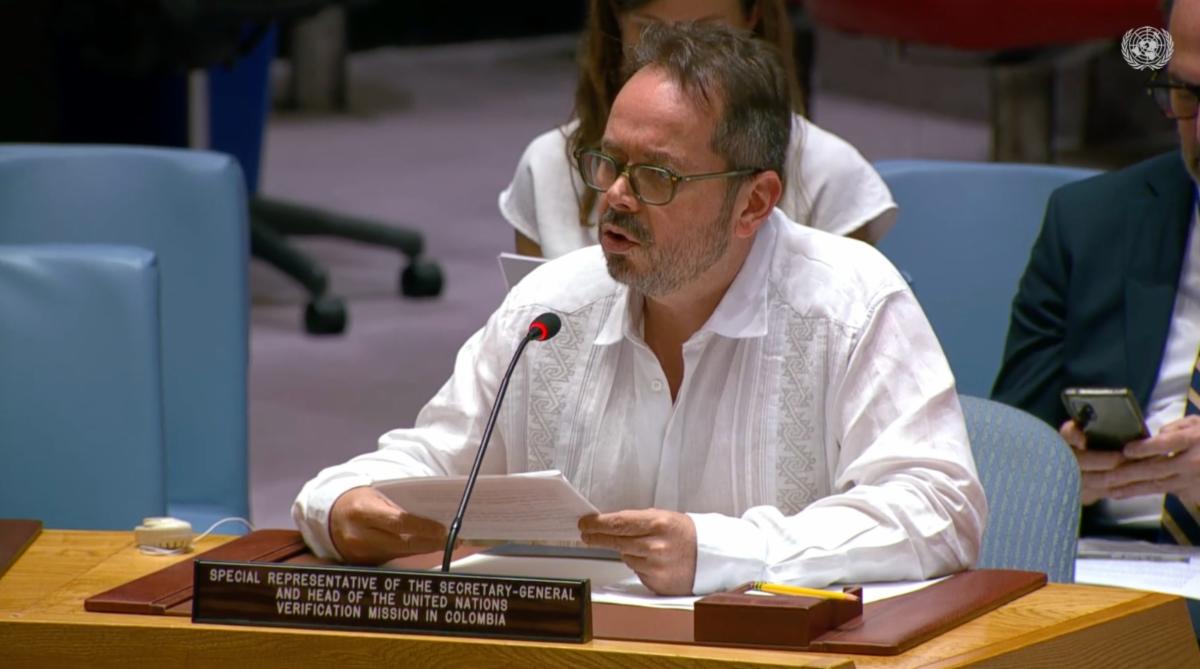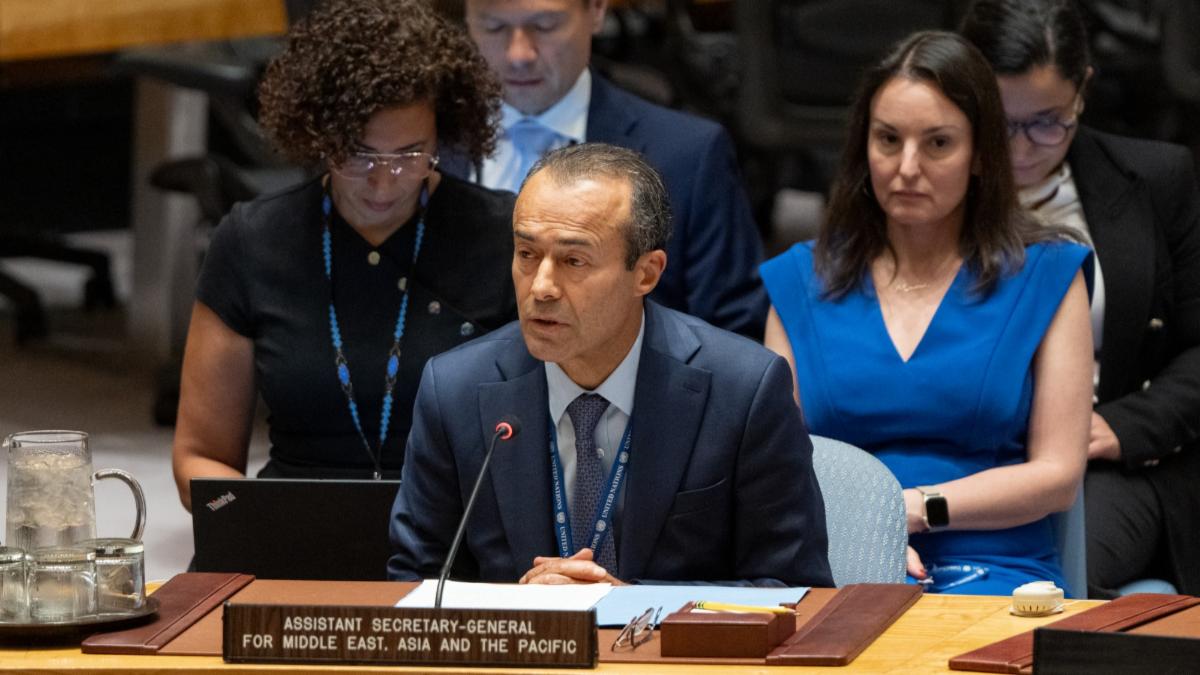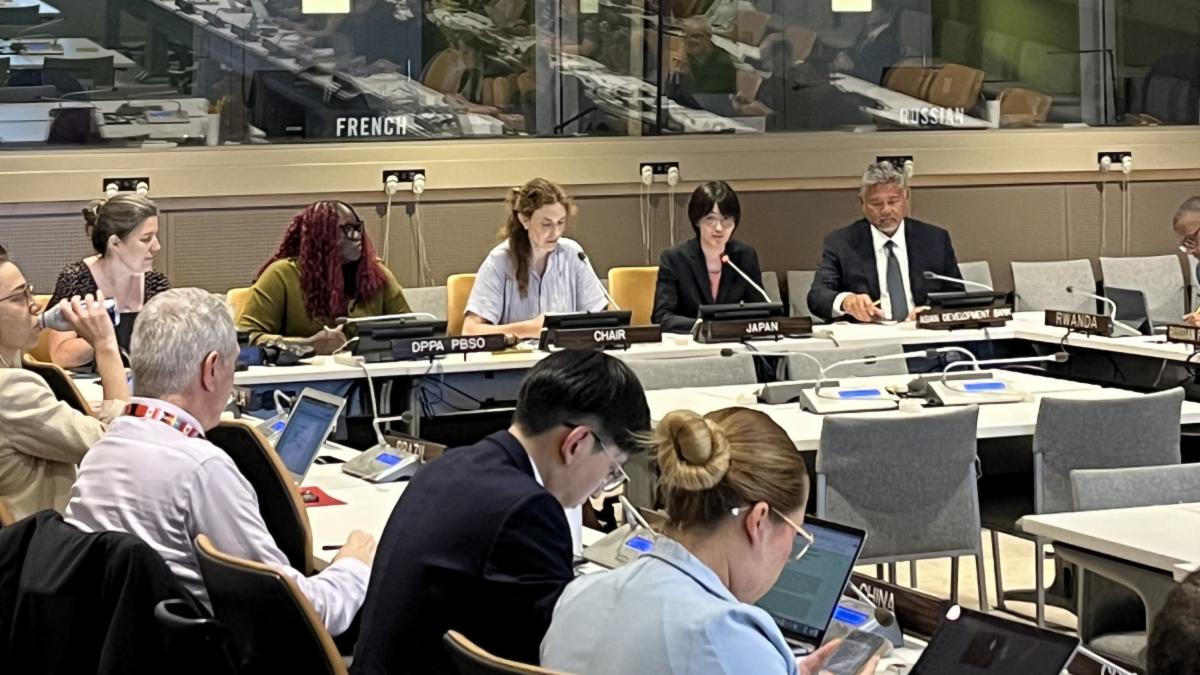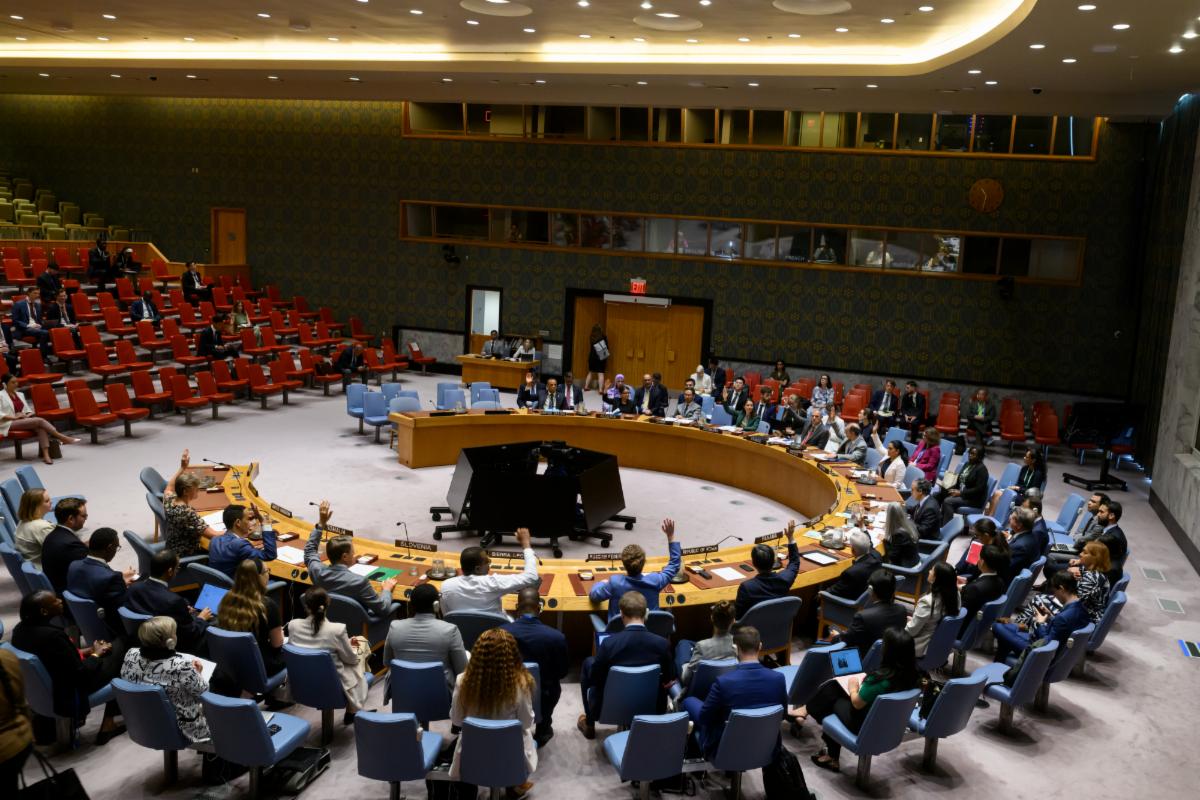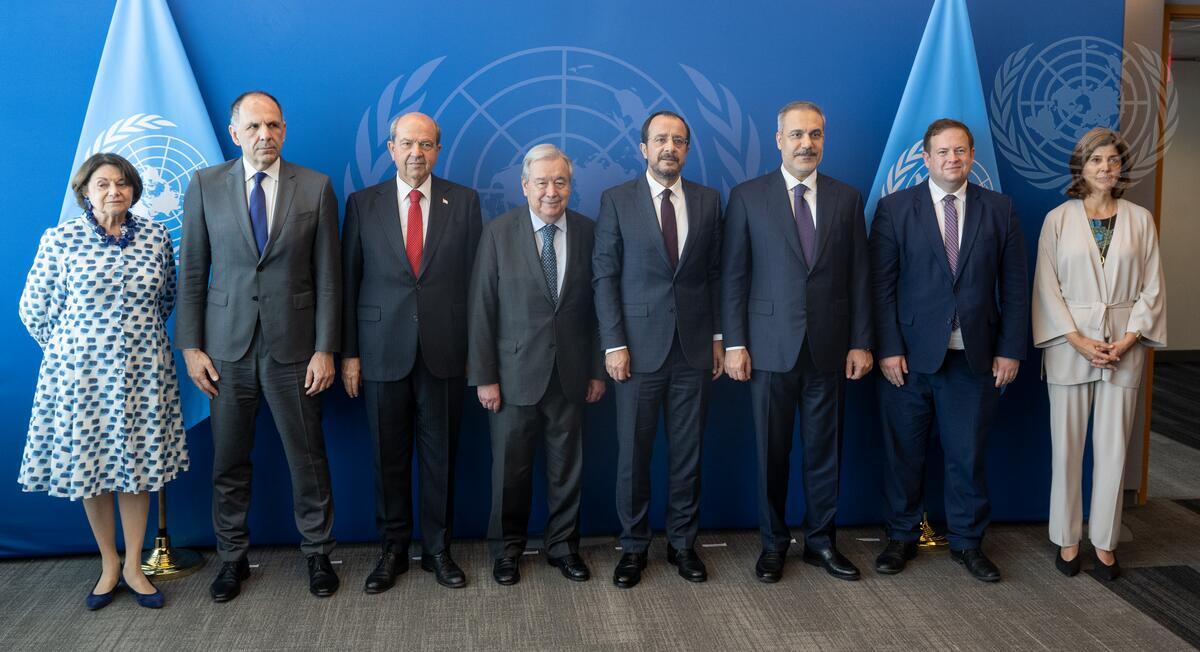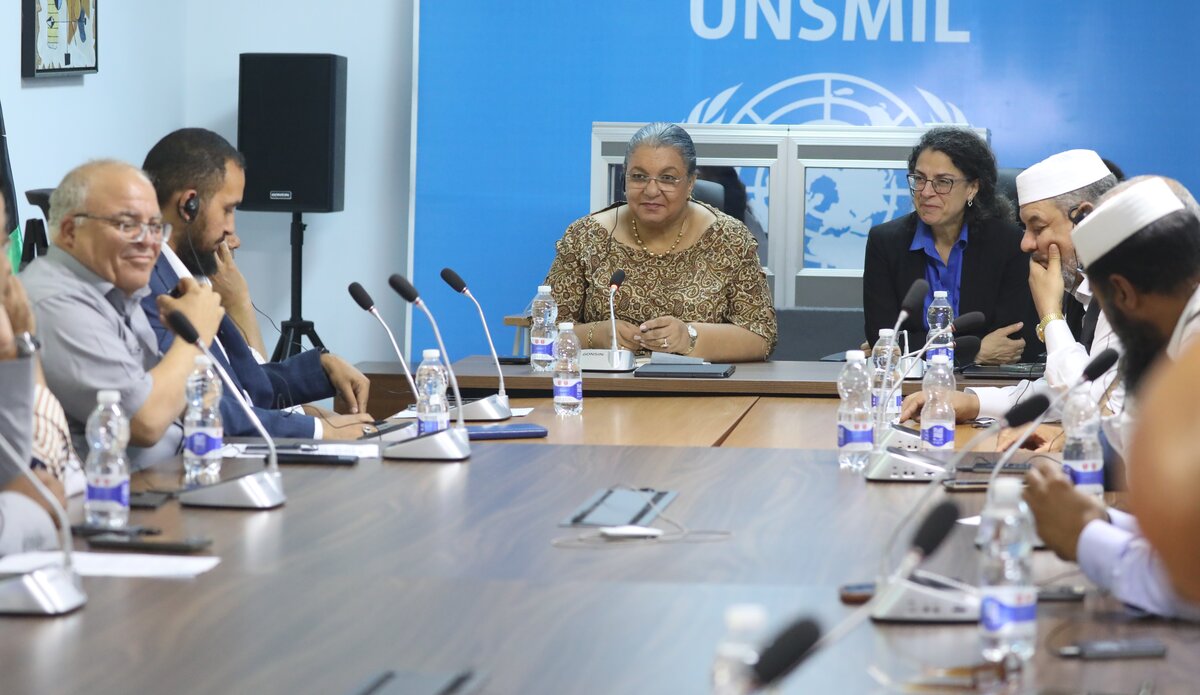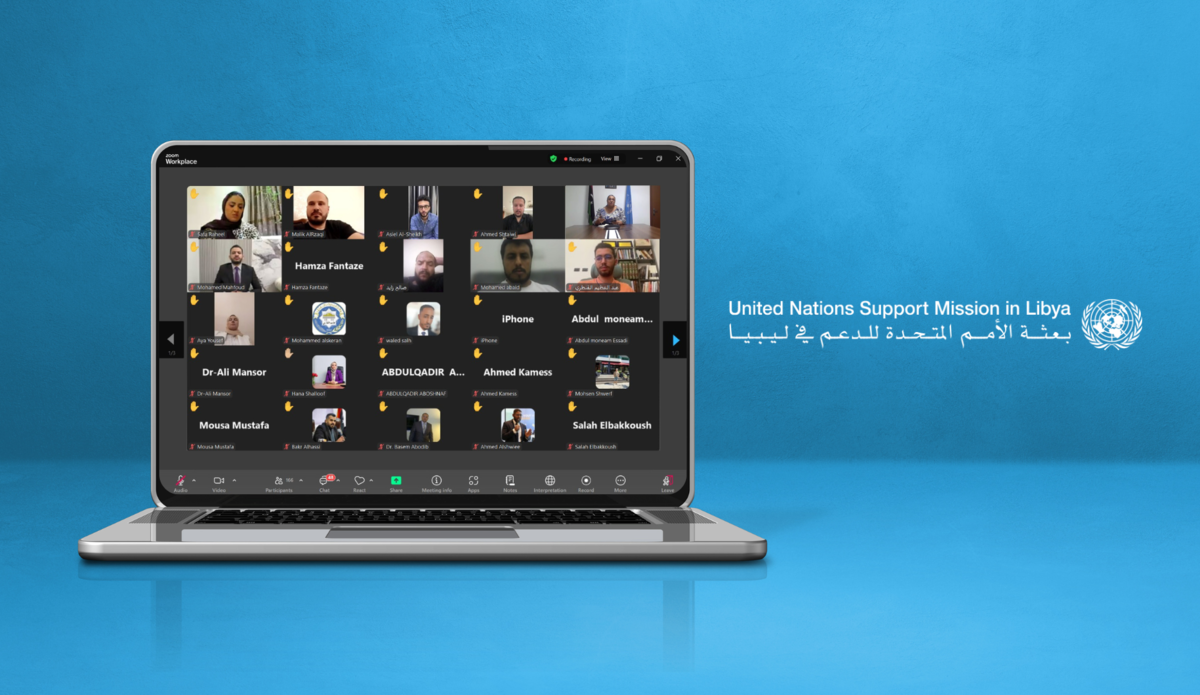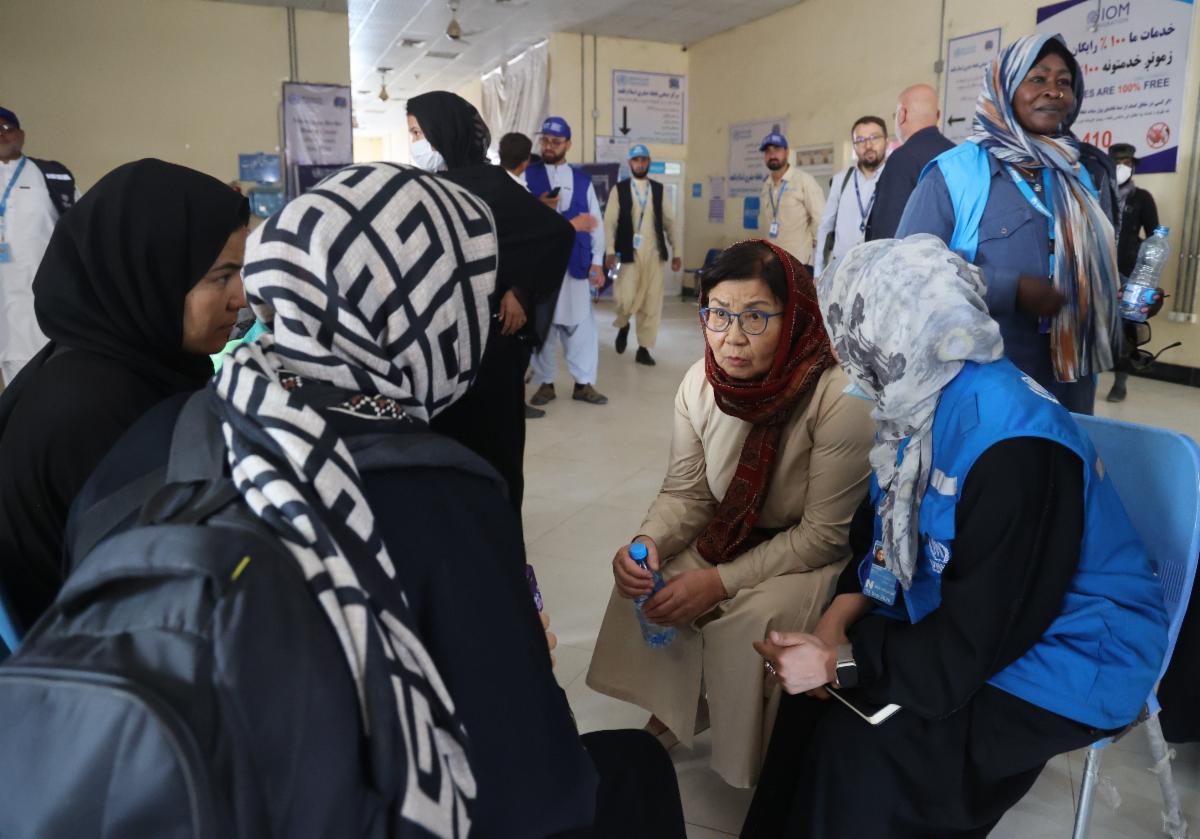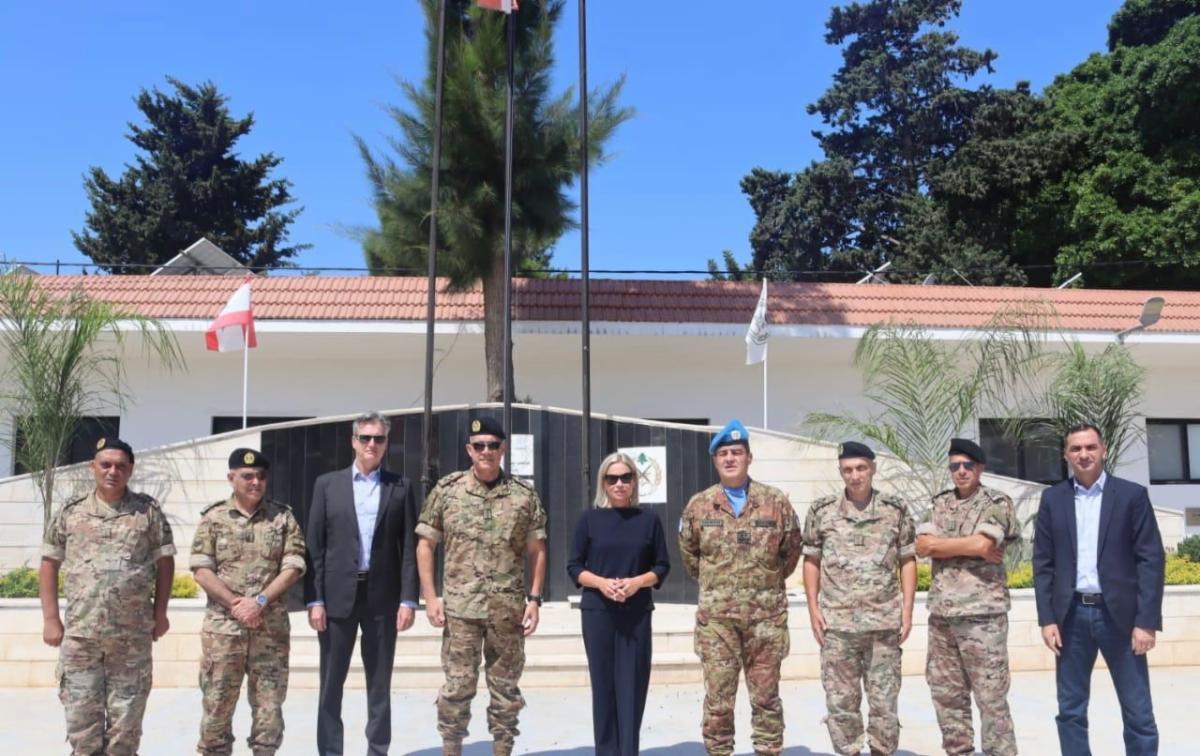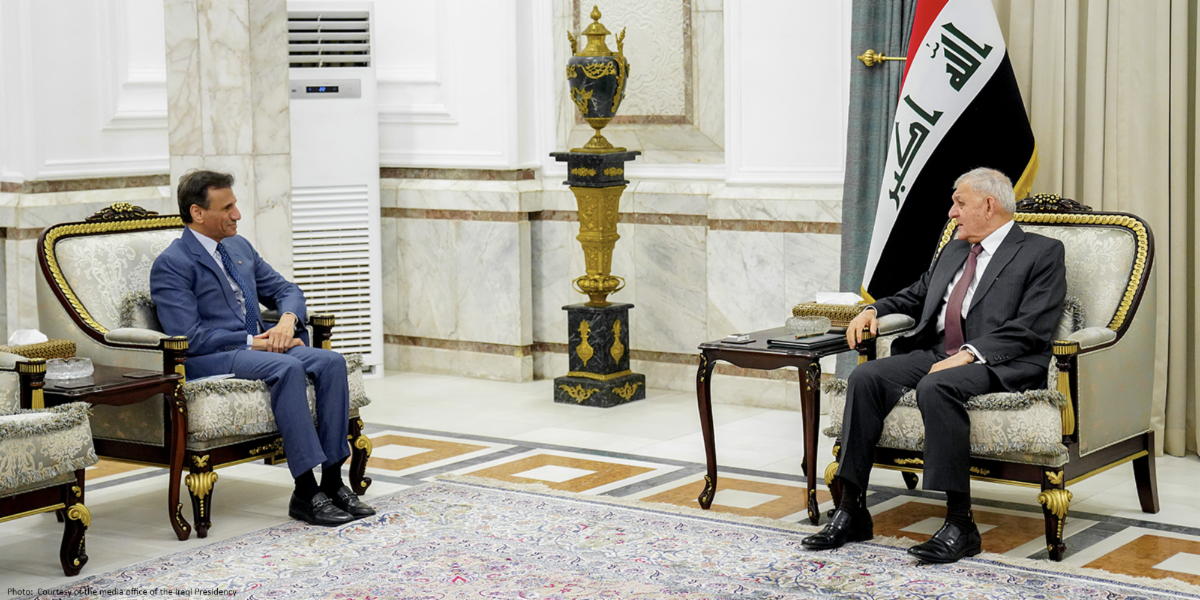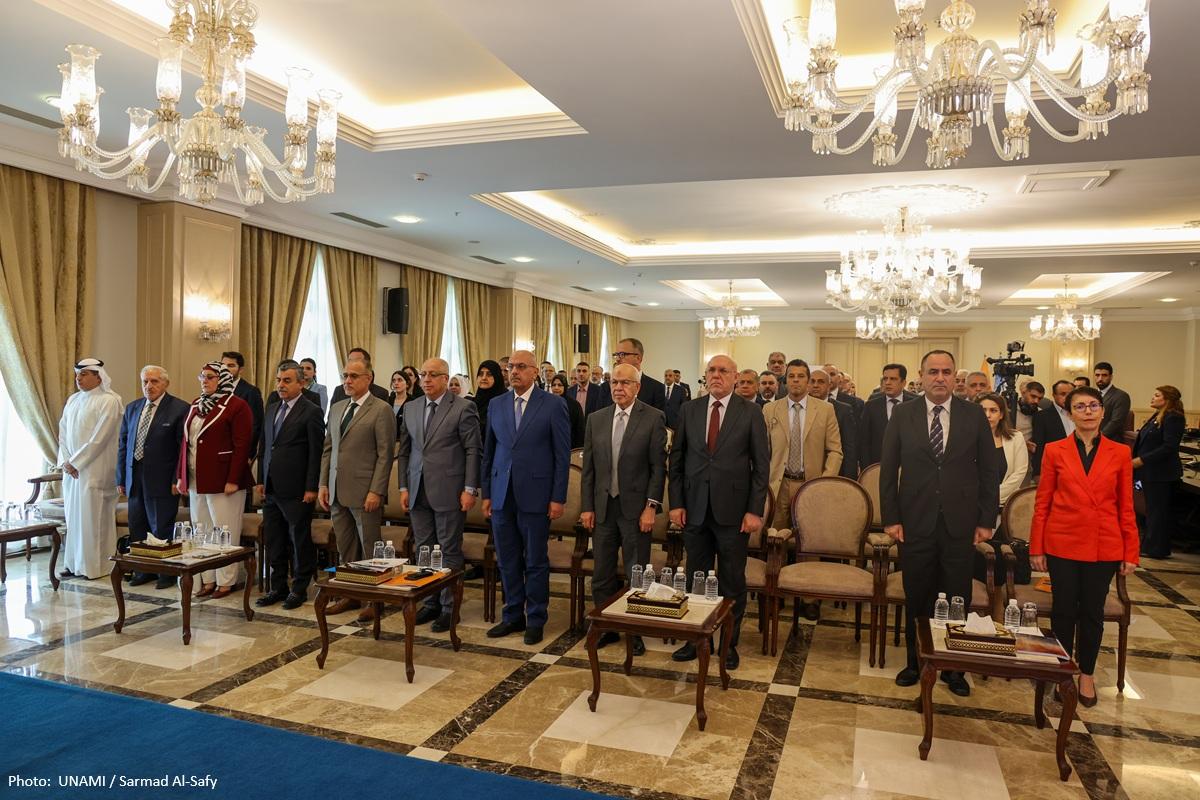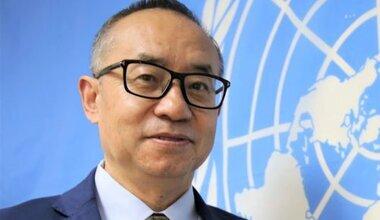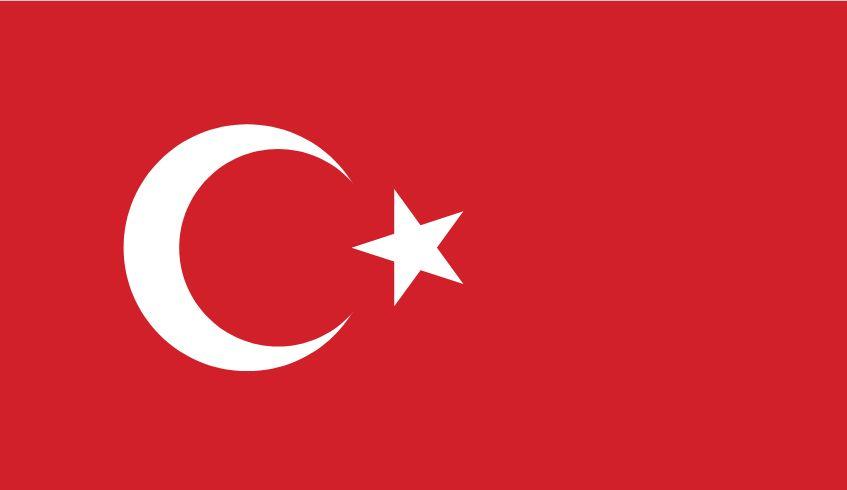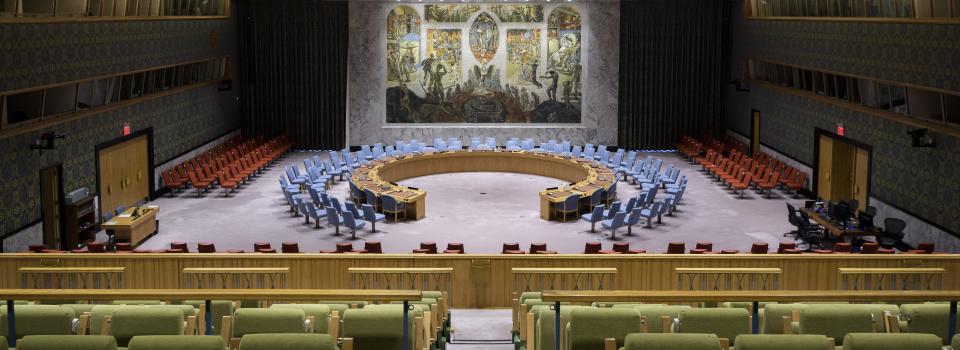Assistant Secretary-General for the Middle East, Asia and the Pacific
Khaled Khiari’s briefing to the Security Council on Syria
New York, 17 July 2025
Mr. President,
Thank you for convening this timely meeting, as Syria contends with another episode of violence that puts at risk its path to a peaceful, credible, orderly and inclusive political transition. Before I brief you on the latest strikes on Syria’s territory, allow me to first address the volatile context.
On 12 July, a series of mutual kidnappings in the Druze-majority governorate of Suweida, southern Syria, escalated into armed clashes between Bedouin tribes and local Druze armed groups. On 14 July, the Syrian authorities started deploying security forces under the auspices of the Ministries of Defense and Interior, with the stated aim of “halting the clashes, restoring order, and pursuing those responsible for the events and bringing them before the competent judiciary.” The Syrian Ministry of Foreign Affairs informed Special Envoy Pedersen and diplomatic missions that some of these security forces were attacked by Druze armed groups, ten were killed and others were abducted. There were also reports of the authorities’ security forces carrying out violations against civilians as they entered Suweida.
The ensuing fighting resulted in hundreds of casualties among the Damascus security forces and Druze fighters, and tragically among Druze and Bedouin civilians, including women, children and elderly. Hundreds were also injured. There were further alarming reports of civilians, religious figures and detainees being subjected to extrajudicial executions and humiliating and degrading treatment. Footage of desecration and mutilation of corpses, as well as incidents of sectarian incitement and looting of private property, was widely circulated on social and conventional media, causing further trauma and fueling intercommunal tensions and violence.
According to the United Nations Office for the Coordination of Humanitarian Affairs (OCHA), civilians caught up in ongoing violence continued to face serious risks, with significant displacement and reports of damage to critical infrastructure, including water, electricity and telecommunications networks. Medical facilities in Suweida and Daraa are at or near capacity and further impacted by the cuts to electricity and water. Commercial supplies have been disrupted and access to the impacted areas remains severely constrained due to insecurity and road closures. The World Health Organization has dispatched emergency medical supplies to Daraa to support trauma care, but deliveries to Suweida remain pending due to security access. The UN and humanitarian partners are engaging with relevant authorities and are mobilizing to send teams to assess the needs and provide essential assistance as soon as the conditions allow.
Mr. President,
I reiterate the Secretary-General’s unequivocal condemnation of all violence against civilians, including all acts that fan the flames of sectarian tensions and rob the people of Syria of their opportunity for peace and reconciliation after fourteen (14) years of brutal conflict. Special Envoy Pedersen and his team on the ground are actively engaged with all parties to address the situation.
Against this backdrop, I take note of the statement by the Syrian Office of the Presidency condemning the violations and committing to investigate and hold to account those responsible for them. I appeal to the Syrian authorities to ensure this investigation is transparent and in line with international standards, and is also completed fast, not least to instill confidence among all Syrians that their State will guarantee protection and justice for all citizens without distinction. As this Council has underlined in its Presidential Statement of 14 March 2025 (S/PRST/2025/4), “inclusive and transparent justice and reconciliation processes” are both important and urgent for sustainable peace in Syria.
I further urge all parties to take constant care to protect civilians, including allowing them to move freely to seek safety and medical assistance. I call on all parties to safeguard infrastructure providing critical services like water and electricity; and to facilitate humanitarian access to people in need.
Mr. President,
Against this complicated and volatile backdrop, citing the violations against the Druze community and pledging to protect them, between 12 and 16 July, Israel resumed and intensified its airstrikes on Syrian territory. In this respect, I echo the Secretary-General's condemnation of Israel’s escalatory airstrikes, including on Suweida, Daraa, and in the center of the capital, Damascus. The strikes targeted the Damascus authorities’ forces and official buildings including the Ministry of Defense and the vicinity of the Presidential Palace, as well as the Mazzeh military airport. The Permanent Representative of Syria has informed the Secretary-General and the Security Council in his letter dated 16 July 2025 (S/2025/470) that these attacks have resulted in casualties among civilians and security forces. Israel also made statements regarding the redeployment of additional IDF troops on the Golan.
Mr. President, on 15 and 16 July, hundreds of members of the Druze community from the occupied Syrian Golan and Syria gathered on both sides of the ceasefire line, in the presence of the IDF, in solidarity with the Druze community in Suweida. Some from the occupied Syrian Golan crossed the ceasefire line and traveled to Hadar on the Bravo side before subsequently returning.
Mr. President,
In addition to violating Syria’s sovereignty and territorial integrity, Israel’s actions undermine efforts to build a new Syria at peace with itself and the region and further destabilize Syria at a sensitive time. It is essential that both Israel and Syria uphold the terms of the 1974 Disengagement of Forces Agreement to preserve the ceasefire between both parties, and refrain from any action that would further undermine it and the stability on the Golan.
Mr. President,
I take note of ongoing efforts to establish a ceasefire, including as President al-Sharaa stated, through American, Arab and Turkish mediation. The situation on the ground is fluid, and as I speak, there are troubling reports of renewed violence in some areas that appears to be targeting Bedouin communities after the withdrawal of the Damascus security forces. I hope that the situation will solidify into genuine and lasting de-escalation on the ground that includes all sides and stakeholders. I take note of the arrangement announced by President al-Sharaa that security in the governorate will be maintained by “some local factions and spiritual leaders.” And I welcome his tribute to the Syrian people’s sacrifice over fourteen (14) years and their aspirations for freedom, dignity and equality, and that the Druze community is an integral part of the Syrian social fabric.
Security and stability in Suweida, and indeed in post-Assad Syria can only be achieved through genuine reconciliation and with the participation of all components of Syria’s diverse society. I urge all Syrian stakeholders to commit to dialogue and emphasize the United Nations’ readiness to work alongside the Syrian people to support an inclusive and credible political transition that ensures accountability, fosters national healing and lays the foundation for Syria’s long-term recovery and prosperity.
Allow me to conclude by reiterating this Council’s call, in the wake of another episode of sectarian violence and avoidable bloodshed in March 2025, for “the implementation of an inclusive, Syrian-led and Syrian-owned political process, facilitated by the United Nations and based on the key principles listed in resolution 2254 (2015). This includes safeguarding the rights of all Syrians, regardless of ethnicity and religion. This political process should meet the legitimate aspirations of all Syrians, protect all of them and enable them to peacefully, independently and democratically determine their futures.” Only then, can Syria truly emerge from the legacy of conflict and embrace a peaceful future. The United Nations, with the guidance from this Council, stands ready to assist in this process.
Thank you, Mr. President.

